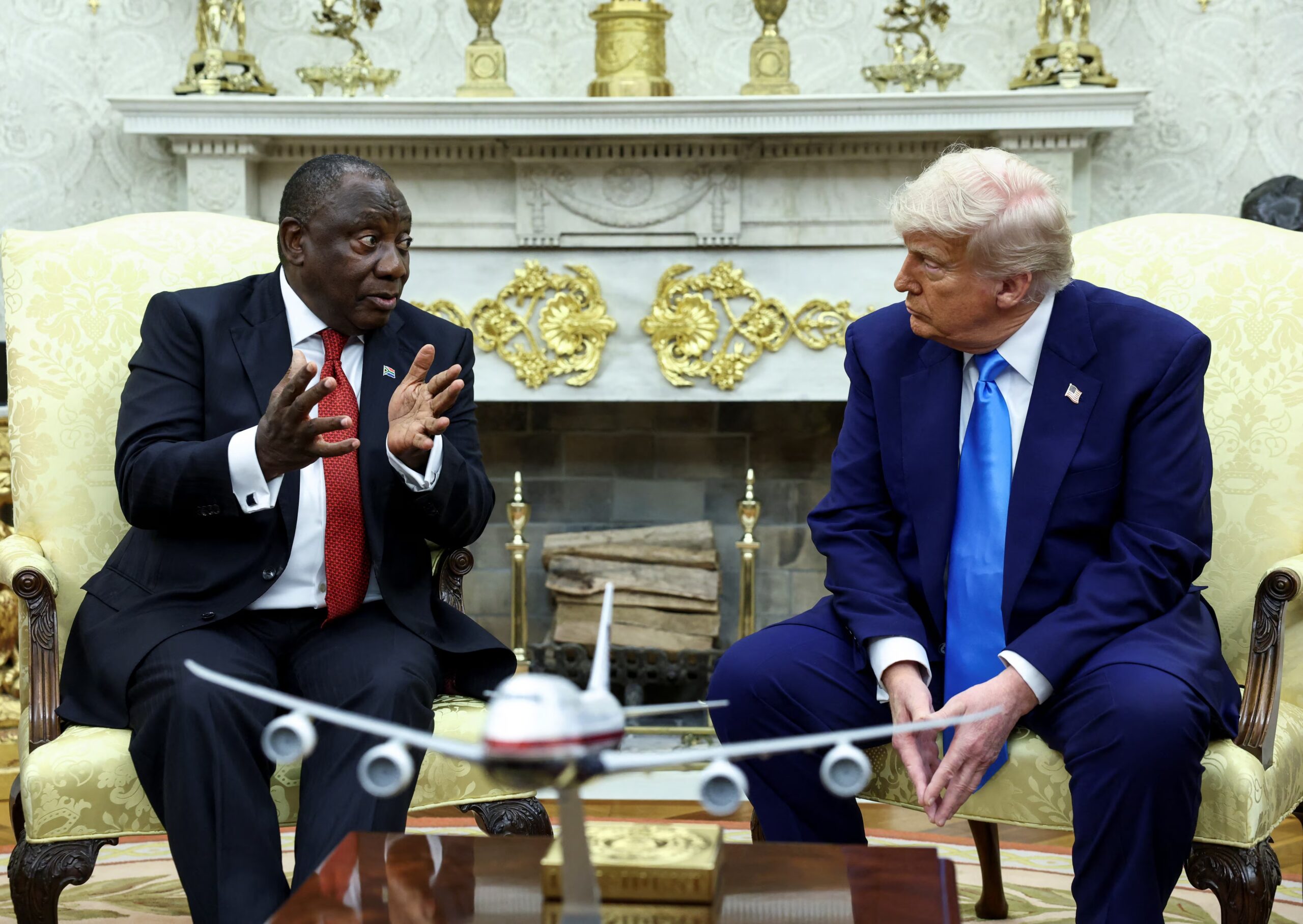A high-stakes diplomatic encounter between South African President Cyril Ramaphosa and U.S. President Donald Trump on May 21, 2025, escalated into a public confrontation, spotlighting tensions over South Africa’s land reform policies, racial equity laws, and the future of American investment in the country.
The Diplomatic Setting
The Oval Office meeting, broadcast live to millions, was intended to strengthen bilateral ties between the United States and South Africa. However, it quickly devolved into a contentious exchange. President Trump accused South Africa of “confiscating land” and perpetrating a “white genocide,” claims that President Ramaphosa vehemently denied and firmly stood his ground.
Trump presented a video compilation featuring opposition figures Julius Malema and Jacob Zuma, including footage of the controversial song “Dubul’ ibhunu,” which he suggested was indicative of widespread violence against white South Africans. Ramaphosa countered that such actions represented a fringe minority and did not reflect the nation’s policies or values.
Starlink’s Controversial Entry
Central to the discord was Elon Musk’s satellite internet service, Starlink.
Startlink’s attempt to penetrate the South African market has faced regulatory hurdles due to the country’s Black Economic Empowerment (BEE) laws, which mandate that foreign companies sell 30% of their equity to historically disadvantaged South Africans. This is despite the fact that Musk, the billionaire owner of X (formerly Twitter ), is a South African by birth.
Musk has criticized these laws as “openly racist,” a sentiment echoed by President Trump. In response, Ramaphosa defended the BEE policies as essential for addressing the legacy of apartheid and promoting inclusive economic growth. The clash over Starlink highlighted broader debates about foreign investment, racial equity, and sovereignty.
Ramaphosa’s Broader Appeal
Despite the tensions, President Ramaphosa used the platform to extend a broader invitation to American businesses. He emphasized South Africa’s strategic position as a gateway to the African market, its commitment to renewable energy, and its growing digital infrastructure.
Ramaphosa highlighted sectors such as technology, manufacturing, and green energy as areas ripe for investment, aiming to bolster economic ties between the two nations. He also underscored the importance of partnerships that respect South Africa’s transformation policies and contribute to sustainable development.
Implications for U.S.-South Africa Relations
The meeting underscored the complex dynamics between economic interests and political values. While President Trump’s administration has emphasized deregulation and free-market principles, President Ramaphosa has prioritized policies aimed at rectifying historical injustices and promoting social equity. The clash over Starlink and land reform reflects broader global debates about the balance between economic liberalization and social responsibility.
In the aftermath, both leaders have indicated a willingness to continue dialogue. President Ramaphosa has expressed hope that the discussions will lead to a deeper understanding and collaboration, while President Trump has suggested that future engagements could focus on areas of mutual interest. However, the underlying tensions remain, and the path forward will require careful navigation of complex political and economic landscapes.

